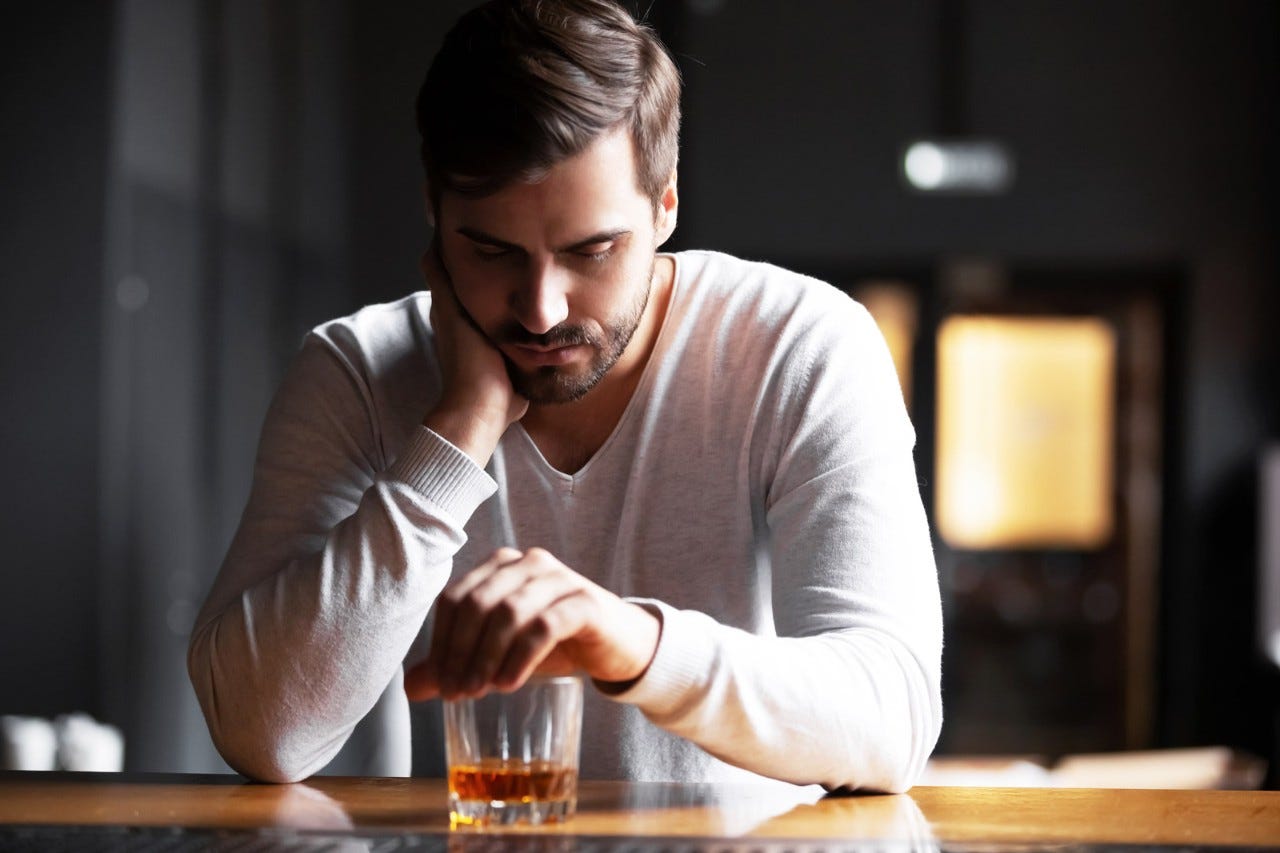How does an addiction develop?
Addiction tends to creep up on us gradually – for a long time, we fool ourselves into believing we can stop at any time. How to get out of addiction.

Caroline Zeller, clinical psychologist and addiction therapist, explains in an interview what is so difficult about quitting addiction and how it can still be achieved.
Ms Zeller, how do we define addiction?
Definitions and medical diagnoses of substance abuse and addictions are fluid and reflect their time. They can differ, for example, in terms of criteria, causes and explanatory approaches. Today, the World Health Organisation’s ICD-10 and DSM-5 international classification of disease systems define what is meant by a dependency in a professional context.
One criterion is, for example, when an addictive substance is used as a solution strategy for emotional compensation in critical life situations. Over time, this gives rise to a psychological and physical dependency and consumption increases. Another typical sign of addiction is that addictive substances such as alcohol, tobacco and illegal drugs are increasingly mixed.
With behavioural dependency, the person affected performs an activity longer and more intensely than actually intended. Another clear sign is that you lose control and simply can't stop. And, of course, the increasing neglect of social contacts and professional matters is part of this.
What is the difference between behavioural and substance-related addiction?
Behavioural addictions are not related to substances but to the behaviour or the feeling experienced by acting out the behaviour. These include an addiction to sex, shopping or the internet, for example. Usually, dependence and addictive behaviour are understood more as substance-related addictions, for example to nicotine, illegal drugs or alcohol.
And that’s why behavioural addictions are not listed as separate disorders in the above ICD-10 diagnostic system. Instead, behavioural addictions are listed there as abnormal habit and impulse control disorder. But things are changing, with gambling addiction being included in the new ICD-11 catalogue as a separate illness for the first time.
How addictions start
The triggers are varied and range from genetic and neurobiological to environmental and psychological factors. On the one hand, they depend on how a person has learned to deal with emotions in the family or how they have been taught to deal with them and what history the person brings with them. And on the other hand, whether there is a susceptibility to addiction within the family.
Genetic studies confirm that addiction may be hereditary, but it isn’t written in stone. For example, some children from families with a history of addiction don’t fall prey to addictions themselves. Neurobiological factors, on the other hand, can be explained by the happiness messenger dopamine, which addicts can't get enough of.
But ultimately, it’s a person’s self-efficacy or resilience that determines whether or not they slip into addiction: What do I believe I can do? What do I want to achieve? What is my standing? How do I handle critical life events? Do I have the emotional resources required to deal with them? The initial decision to take an addictive substance is usually up to the individual.
What’s the best way to treat addiction?
There are many options – it depends which one works best for you. You may benefit from support during withdrawal, an inpatient withdrawal programme, outpatient therapy or a self-help group.
However, it’s important to have regular counselling over a longer period of time so you have the support in place to get help again quickly if you relapse. Talking to a person you trust about negative emotional experiences often helps to change perspective and identify solutions.
Can you ever be cured of an addiction?
You can certainly feel healthy again. The WHO, for example, does not speak anywhere of a classic recovery; the diagnosis of "addiction" accompanies you throughout your life. Once an addiction memory is activated, addictive thoughts can be pushed into the background through counselling and therapy, but relapse is still possible at any time – even decades later.
How can friends and family help?
We encourage friends, family and even colleagues not to sweep the topic under the table, but to use “I sentences” to explain how they’ve seen the addiction affecting the person. Tell them that you still value their friendship and support them. There’s little point in reproaches and recrimination. But loved ones also have to protect themselves against falling into co-dependency. Friends and family can also go for counselling.
If communication lines are no longer open, a clean break may be necessary. You have to be consistent and can’t give in after only a short time – and that can be difficult when it’s someone you’re close to. But the helper syndrome is unfortunately not conducive to confronting addicts. A person in a downward spiral often has to hit rock bottom before they can be helped. Because you must make the decision to confront your addiction on your own initiative.


